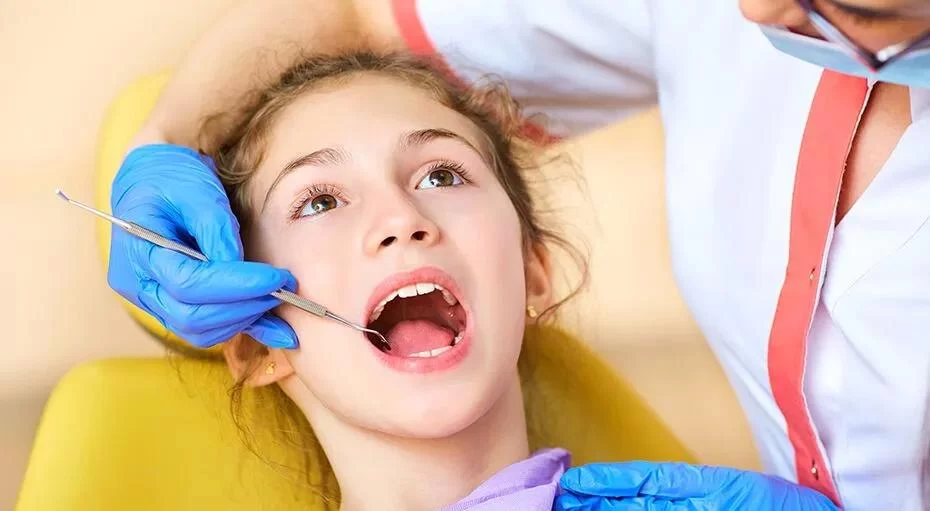
How to Help Kids Understand the Importance of Dental Health
As parents, caregivers, or educators, we all know how difficult it can be to get kids to brush their teeth regularly. The idea of dental health often doesn’t excite them, and they might not even understand why it’s so important. After all, what’s the big deal about brushing teeth when there’s so much fun to be had in the world? That’s why it’s essential to find creative and effective ways to talk to kids about the importance of dental health. I’ve learned a lot about this topic over the years, and in this article, I’ll share some insights and tips that have worked for me in making dental care both fun and meaningful for kids. Here’s how we can approach this topic and make it resonate with our little ones.
1. Use Simple and Relatable Language
When I talk to my children about dental health, I always remember to use language they can easily understand. Instead of diving into the scientific aspects of dental hygiene, I focus on simple and relatable concepts. For example, I explain that their teeth are like “tiny soldiers” that help them chew food, talk, and smile. Keeping these soldiers strong and healthy is essential so they can do their job properly!
Additionally, I use metaphors like “cavities are like little holes that make our teeth weak,” which help them visualize the consequences of not brushing their teeth. When you simplify the concepts of dental health, it becomes easier for children to comprehend, and they’re more likely to take it seriously.
2. Make It Fun with Stories
One of the most effective ways to engage children is by telling stories. Kids love stories, and I’ve found that weaving dental health into a fun narrative can really capture their attention. For instance, I once told my kids the story of “Captain Clean Teeth,” a superhero who fights the evil Sugar Monster and keeps everyone’s teeth shiny and healthy. Captain Clean Teeth goes on adventures with his trusty toothbrush, battling sugar and plaque, saving teeth from cavities and decay!
Through this story, I was able to show them how brushing teeth can be a fun and heroic activity. It’s a story they loved, and it helped them understand that taking care of their teeth is not only important but also a part of being a “health hero” in their own right. Creating stories like this can spark a sense of imagination and excitement about dental hygiene.
3. Show the Real-Life Consequences
While fun stories and metaphors are important, it’s also essential to show kids the real consequences of neglecting their dental health. I once took my son to the dentist, and he had a small cavity that needed to be filled. While the dentist was explaining the procedure, my son started to get nervous. I asked him, “Do you want to have more of these in your teeth? If you don’t brush your teeth properly, you might have to come back and get more fillings!”
This immediate connection between brushing habits and the real-life consequences helped him realize that dental care isn’t just something that’s “nice to have” – it’s necessary to avoid pain and discomfort. I’ve also used educational videos and pictures showing how sugar causes cavities, which visually reinforces the concept and drives the point home.
4. Lead by Example
One of the best ways to teach kids about the importance of dental health is by setting a positive example. Kids are keen observers, and they often mimic what they see adults doing. I always make sure that I brush and floss my teeth in front of them, showing them that I take dental health seriously. I even make it a point to let them know why I’m doing it: “I brush my teeth because I want to keep them strong and healthy so I can eat my favorite foods without any pain!”
This helps my children understand that dental health isn’t just something for them, it’s a lifelong practice for everyone in the family. By incorporating brushing time into our family routine, they also learn that dental care is a normal and non-negotiable part of daily life.
5. Use Rewards and Positive Reinforcement
To encourage good dental habits, I’ve found that positive reinforcement works wonders. I often use a reward chart where my kids get stickers for each time they brush their teeth properly. After accumulating a certain number of stickers, they can choose a small reward, like picking a favorite book for bedtime or a special activity. The reward system helps make dental hygiene feel more like a fun challenge rather than a chore.
But it’s not just about the rewards – I also make sure to praise their efforts. “Great job brushing your teeth today! I’m so proud of you for keeping your smile healthy!” This kind of encouragement goes a long way in motivating them to continue practicing good dental habits.
6. Make It a Family Activity
Another strategy I’ve used is making dental care a family activity. After dinner, we all gather in the bathroom to brush our teeth together. We make it a fun bonding experience where we race to see who can brush their teeth the longest or who can do the best “toothbrush dance.” It’s a simple way to ensure everyone stays on track while also making it feel like a team effort.
When kids see their parents and siblings taking care of their teeth, it reinforces the idea that dental health is important for the entire family. Plus, it gives us a chance to spend quality time together and laugh, making the process more enjoyable for everyone.
7. Take the Fear Out of Dentist Visits
Many kids fear going to the dentist, and I’ve experienced this firsthand. To make dentist visits less scary, I take my children to the dentist regularly, even when there’s no immediate need. I’ve found that when kids become familiar with the dental office environment, they’re less likely to feel anxious. We also practice “pretend dentist” at home, where my kids take turns being the dentist and the patient. This helps them understand that the dentist is there to help them and that the experience isn’t painful or scary.
Creating positive associations with the dentist can make a world of difference in how kids approach dental visits in the future.
Conclusion
Talking to kids about the importance of dental health doesn’t have to be a daunting task. By using simple language, telling fun stories, showing the real consequences of neglecting dental hygiene, leading by example, using rewards, making it a family activity, and taking the fear out of dentist visits, we can help kids develop lifelong habits that will keep their teeth healthy and strong. As we guide them through this process, we also set them up for a future of good oral health – and that’s something they’ll thank us for as they grow older!







 Dr. Christian E. Miller, DDS5.0 (5 review)
Dr. Christian E. Miller, DDS5.0 (5 review) NorthShore Health Centers4.0 (153 review)
NorthShore Health Centers4.0 (153 review) Sumner Smiles Dentistry4.0 (79 review)
Sumner Smiles Dentistry4.0 (79 review) Johnson Ebenezer DDS4.0 (12 review)
Johnson Ebenezer DDS4.0 (12 review) Daniel Jeffrey Cohen, DDS5.0 (117 review)
Daniel Jeffrey Cohen, DDS5.0 (117 review) Brace Busters3.0 (2 review)
Brace Busters3.0 (2 review) The Importance of Oral Health Education During Pregnancy for a Healthy Pregnancy
The Importance of Oral Health Education During Pregnancy for a Healthy Pregnancy Best Tips for Brushing Your Teeth Properly for Healthy Gums: Essential Techniques for Oral Health
Best Tips for Brushing Your Teeth Properly for Healthy Gums: Essential Techniques for Oral Health Why Skipping Dental Checkups Can Lead to Bigger Oral Health Problems
Why Skipping Dental Checkups Can Lead to Bigger Oral Health Problems Advantages of Porcelain Dental Restorations
Advantages of Porcelain Dental Restorations How Can Diabetes Cause Tooth and Gum Problems? Preventing and Managing Oral Health Issues
How Can Diabetes Cause Tooth and Gum Problems? Preventing and Managing Oral Health Issues Healthy Habits for Promoting Good Oral Health and Hygiene: Tips for a Healthy Smile
Healthy Habits for Promoting Good Oral Health and Hygiene: Tips for a Healthy Smile